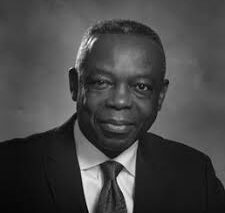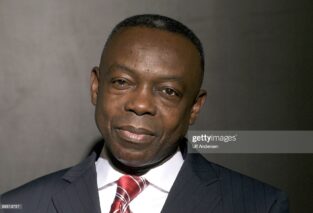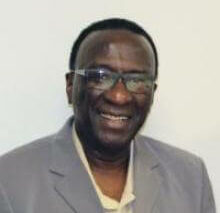Sierra Leonean-born Professor Michael Abioseh Porter of Drexel University in Philadelphia, USA, applauds the contributions African writers have made to world literature, and further elaborates on how he sees African literatures, in particular, and African studies, as a whole, being taught in most North American universities.
Professor Porter, as a professor of African literatures in a North American university, how are African studies generally received in American universities?
In the sixties and seventies, African literature was a fashionable discipline in most North American universities for its introduction into the world of letters of what is generally referred to as the “exotic.” Issues like the “Back-to-Africa” movements that sprang up here and there in North America, in particular, and in the African Diaspora, in general, spurred this interest in African literatures. This was mainly promoted by the rise of the Civil Rights Movement under Martin Luther King, Jr. in the fifties and sixties, and other organisations militating for a greater voice for Africa in academia. From the eighties until today, there has been a kind of a backlash with the rise of the so-called conservatism in the United States that has resulted in some sort of antagonism, not only against the study of African literatures, but generally against what we might call the “multi-cultural literatures.” There are people in America, for example, who genuinely claim that the study of multi-cultural literatures is a way of undermining what they say is truly American. As a result of such antagonism, those departments that taught black studies, Afro-American literature, African literatures, etc, have been almost driven to the ground for lack of funding.
It seems to me that with the enormous contribution by African writers to world literature, it would be hard for anyone to completely ignore African literatures these days.
You’re right. The contribution of the sons and daughters of Africa living in the Diaspora to African literatures and studies has been of immense value to literary creativity throughout the world. As hard as such opponents of African literature might try to do, they have not succeeded to stifle the import of African contribution to world literature. The genie was already out of the bottle and they could not get it back in, try as hard as they might. Look around you and see how much contribution sons and daughters of Africa have made to world literature. There has been a Nobel Laureate in literature from just about every part of Africa over the past several years, or so: Soyinka from Nigeria, Nadine Gordimer from South Africa, and Naguid Mahfouz from Egypt. There are numerous other recipients of other forms of literary awards that have made Africa truly proud of her sons and daughters.
What does it take to be a good teacher of African literatures?
To teach African literatures requires that the teacher be aware of two things, which, in my opinion, are essential. The first is to know and understand Africa as a continent of well over 800 million people with their trials and tribulations, victories and defeats. Contrary to what some people may wish, Africa is a continent that is not about to disappear. It’s here, it’s always been here and it’s not going anywhere. Personal experience has convinced me that in the teaching of African literatures, the teacher must have a thorough mastery of not only the text but the context as well. You cannot simply teach the text and ignore the context informing such a text. The teacher must first of all be aware that the vast majority of African writers shun the principle of “l’art pour l’art”. Art for its own sake is not widely practiced at all in Africa mainly because the writers realise that the backdrop against which they write is in such a state of turmoil that merely writing for the aesthetics, or the sheer beauty of the art of writing, holds little or no interest whatsoever for the majority of African writers. However, irrespective of the message they may wish to convey, the writing carrying such a message is generally of very high and appreciable quality. That is why it is imperative that the teacher understands that the text and the context go hand-in-hand.
More and more Africans, for various reasons, have chosen to settle and work in North America. What role do you see the children of such immigrants playing in the promotion of African studies, in general, and African literatures, in particular?
That’s an important question. The generation of young people growing up now is probably the first generation born to most immigrants from Africa during a period when the world has literally shrunk as a result of the marvels of information technology. There is instant communication, instant means of travel and so on. What I see happening is a situation in which the younger generation is already beginning to feel that they also have much at stake in what is happening back in Africa. They might not have been born there but they are increasingly aware of what’s happening on the continent and, more importantly, they now see events in their parents’ homeland as affecting them as well. They have family back home and some of them have even been going back and forth between North America and Africa with their parents and, as such, they are beginning to have some affinity for what touches the continent. I am, of course, aware that this is a rather generalised statement and not everyone feels this way but, on the whole, there is a sort of awakening to Africa that was not there before. Some of them may want to go to Africa only on a safari and therefore have feelings neither for the continent nor for its people. However, some are going for positive reasons; namely, the realisation that their personal progress and development are tied to that of their mother continent. There’s hope here, I believe.



